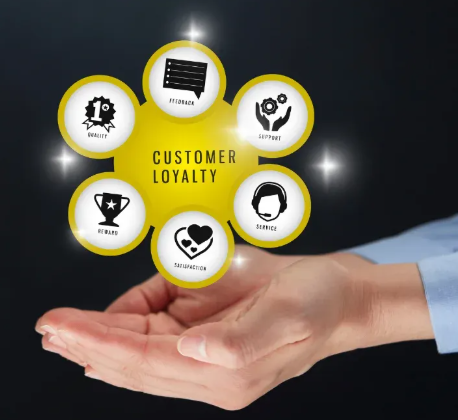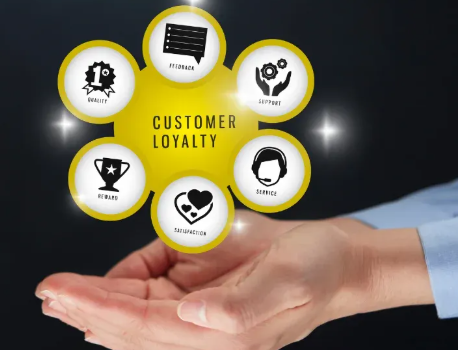
In today’s crowded market, small businesses need more than just generic ads to stand out. The secret to engaging and retaining customers lies in personalized marketing. By tailoring messages and offers to individual customer preferences, behaviors, and needs, small businesses can create deeper connections with their customers, fostering loyalty and boosting sales.
Personalized marketing is about making your customers feel recognized and valued, not just like another number in a database. Let’s explore how small businesses can leverage personalized marketing to enhance customer loyalty and grow their brand.
What Is Customer Loyalty and Why Is It Important for Small Businesses?
Customer loyalty refers to the ongoing relationship between a business and its customers, where satisfied customers return to make repeat purchases and advocate for the brand. Loyal customers are invaluable as they not only continue to buy from you, but they also recommend your business to others, which generates new customers without additional marketing costs.
For small businesses, customer loyalty is crucial because it reduces reliance on costly advertising, increases lifetime value per customer, and strengthens the overall brand presence.
7 Personalized Marketing Strategies to Boost Customer Loyalty
1. Building Stronger Customer Connections
Personalized marketing helps businesses connect with customers on a deeper level by addressing their individual needs. This personalized approach makes customers feel understood, which builds trust and encourages them to return. By tailoring messages and offers, businesses can create an emotional connection that drives repeat purchases and positive word-of-mouth.
2. Personalized Offers and Recommendations
Small businesses can leverage customer data to provide product recommendations and offers that match their preferences and past purchases. This approach creates a more engaging and relevant shopping experience, which increases the chances of a customer returning to buy again. AI tools can help predict future customer behavior, enabling businesses to suggest products they’re likely to love, enhancing the overall customer experience.
3. Improving Customer Experience
Offering personalized experiences makes customers feel valued and appreciated. Whether through customized product suggestions, exclusive discounts, or tailored communications, customers are more likely to engage with a business that caters to their unique needs. By delivering more relevant content and promotions, businesses can keep customers coming back for more, boosting long-term loyalty.
4. Increasing Engagement and Retention
Personalized marketing enhances customer retention by delivering content and offers that resonate with individual preferences. By using customer data to segment audiences and personalize communications, small businesses can engage customers on a deeper level, increasing the likelihood of repeat business. This type of approach not only strengthens customer loyalty but also makes customers feel like they are a priority.
5. Enhancing Brand Perception
When customers feel understood and appreciated, their perception of the brand improves. Personalizing marketing efforts shows that a business values its customers beyond their purchases. This boosts overall customer satisfaction and strengthens the relationship, which leads to more loyal customers. By using insights gained from customer data, businesses can create targeted marketing campaigns that appeal to individual interests, enhancing the brand’s image.
6. Encouraging Word-of-Mouth Marketing
Satisfied customers who feel personally connected to a brand are more likely to share their positive experiences with others. Personalized interactions leave lasting impressions, which makes customers more likely to recommend a business to friends, family, or colleagues. Whether through social media, reviews, or direct conversations, word-of-mouth marketing driven by personalized experiences can bring in new customers and increase organic growth.
7. Leveraging Data to Improve Personalization
Customer data is essential for understanding preferences, behaviors, and demographics. By analyzing this information, small businesses can tailor their marketing strategies to deliver more targeted advertising and messaging. Personalized emails, product recommendations, and promotions based on customer data increase the likelihood of conversions and deepen the connection between businesses and their customers.
Conclusion
Personalized marketing is a powerful tool for small businesses looking to build lasting customer relationships. By creating tailored experiences, businesses can foster loyalty, enhance customer satisfaction, and generate positive word-of-mouth. When customers feel like their needs are understood and met, they’re more likely to stay loyal, recommend the brand to others, and become long-term advocates.
Incorporating personalized marketing strategies into your small business approach isn’t just about using data—it’s about showing empathy, understanding, and creating meaningful connections. By focusing on what makes each customer unique, small businesses can thrive in an increasingly competitive marketplace.












